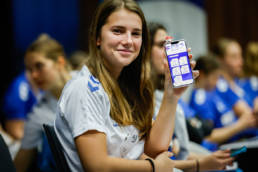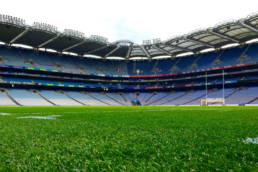The European Commission (EC) has funded the publication of a “European Guidebook of Best Practices in Dual Career”. TWIN Founder & CEO Wolfgang Stockinger has been awarded to author the introductory column for this book.
In his “TWIN Perspectives” (pages 18-19), he unites many-sided views on the topic of dual career within the sport club context, spanning policy, research and practice:
“Reality check. According to a recent investigation in British professional sports, 90% of athletes need to work full-time after their sporting career. Naturally, this figure would emerge to be even higher in Olympic respectively amateur sports. With respect to the European labour market, there is consequently a necessity for athletes to pursue a dual career as longterm unemployment is three times higher among low qualified workers than among those with high qualifications. In the same moment, a dual career should be detached from sporting or financial success. In fact, monetary security only constitutes one factor to help stabilize a post-sporting life.“Retirement is like walking out of the supermarket with all your bags and not knowing where your car is.” This statement of famous former cricketer Steve Harmison embodies the multi-dimensional challenge waiting for athletes at the normative or non-normative end of their sporting career. Head (with reference to structure), heart (recognition) and belly (intuition) need to find a new balance. In other words, the inner compass of athletes must recalibrate itself to point towards meaningful future ways.
Our human compass essentially roots in values. Values help us establish and maintain a relationship to the person in us, our true “Self”. This person (from Latin personare, “to sound through”) longs to become manifest in our actions. For an athlete, sport serves as a most powerful way of expression. However, we all carry a variety of passions, interests and talents which have the desire to be heard. In this regard, it is a long-standing psychological finding that people with a broad foundation of versatile values are more robust and crisis-proof than those whose concept of life is constructed around just one central value.
After years of working with athletes of all ages, it is my strong conviction that the individualized exploration and realization of meaningful life aside from sports halls, football pitches or ski slopes is a supreme factor in athletic development. Where there is human flourishing, there is mental health and, coherently, performance enhancement. This is the sporting dimension of dual careers. Highlighting this dimension and, more importantly, making it comprehensible will substantially strengthen the valuation of dual careers among both athletes and sport systems. Role models are the most efficient communicators of this new understanding: “To the young athlete, don’t bet everything on your health, take control of your life and keep educating yourself. Learn and believe that smartening up is also a way to become a better, more complete athlete”, according to Vincent Kompany.
Within the sport system, clubs play a vital part in the future progress of Dual career in Europe. Often, they represent the main structural layer surrounding talented and elite athletes, in amateur as well as in professional sports. Therefore, clubs are asked to create a clear image on how to contribute to an integrated developmental space for their athletes. A tailored internal management system, collaborative partnerships with the educational and economic sector and a systemic openness to international best practice may serve as core pillars of a coordinated Dual Career approach. As a result, strategic measures on club level do not only signify a lived corporate social responsibility but further promise a concrete athletic return on investment: “Club support for off‐field life, quality of free time, and time spent in social life predicted 21% of the variance in athletic engagement for early career players.”
To conclude, a dual career is so much more than just a safety net, so much more than just securing livelihood and so much more than just a future tool. Rather, a dual career should be seen as a metaphor for the aforementioned passions, interests and talents and, hence, a metaphor for stability, balance and meaning, during and after a sporting career. Education itself only serves as the ‘carrier molecule’ of the manifold potentiality of athletes. This happens in the name of a greater cause and leads to a multi-directional impact: in favour of the athlete, in favour of sport, education and economy, and, in favour of the European community.”
Find the European Guidebook of Best Practices in Dual Career for free download here.




